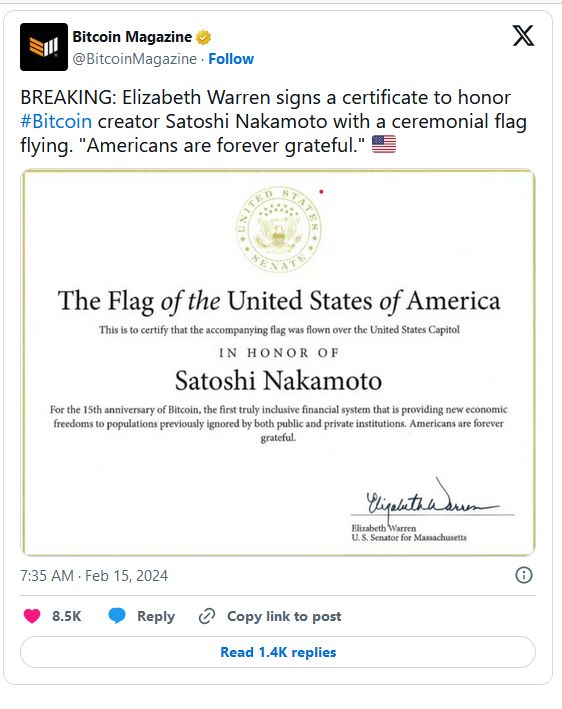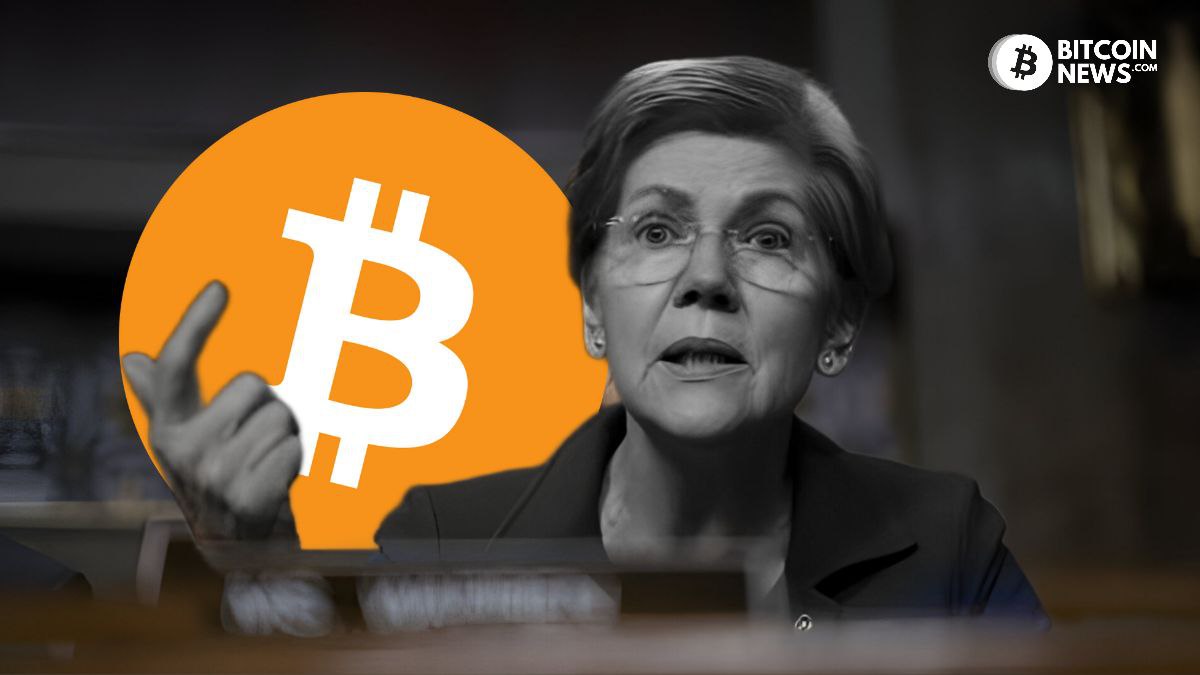An elaborate prank orchestrated by Bitcoin supporters created the illusion that U.S. Senator Elizabeth Warren, a vocal opponent of cryptocurrency, had authorized a flag to be flown over the U.S. Capitol in honor of Satoshi Nakamoto, the pseudonymous creator of Bitcoin. However, this incident does not signify a sudden change of heart from Senator Warren regarding Bitcoin.
Senator Warren has built a reputation as one of blockchain’s most outspoken critics in the Senate, championing bills like the Digital Asset Anti-Money Laundering Act, which aimed to restrict financial institutions’ ability to engage with Bitcoin and other cryptocurrencies. Therefore, the apparent endorsement of Satoshi Nakamoto by Senator Warren raised eyebrows within the cryptocurrency community.
The Bitcoin community swiftly embraced the news, with articles circulating on social media platforms like X (formerly Twitter) from Bitcoin Magazine praising Warren’s “sudden embrace of Bitcoin.” However, closer examination revealed that the development was little more than a clever stunt executed by Bitcoin supporters.
It was quickly discovered that individuals can, for a fee, submit a form on Senator Warren’s website to request a flag to be flown over the U.S. Capitol. This realization debunked the notion of Warren endorsing Bitcoin, prompting some commentators to retract their initial enthusiasm.
Bitcoin Magazine’s article, which humorously portrays Warren as having “seen the orange-tinted light” (a reference to Bitcoin’s orange logo), suggests that the senator’s office adopts a lenient approach to moderating submissions to its flag request form. Despite inquiries from media outlets, including CoinDesk, Bitcoin Magazine has not provided any comment on the incident. Additionally, attempts to reach Senator Warren’s office for clarification were met with limited success, as calls went unanswered, and emails were not immediately responded to.
In summary, the incident involving Senator Warren and Satoshi Nakamoto’s flag serves as a reminder of the potential for misinformation and sensationalism within the cryptocurrency space. It underscores the importance of critically evaluating news and considering the motives behind apparent endorsements or statements from public figures.




